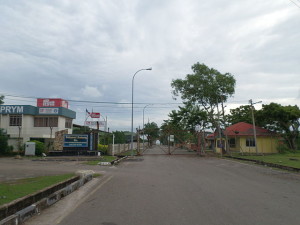
The government of Malaysia says its pilot customs reform program implemented through public-private collaboration has so significantly cut the compliance costs of businesses that it plans to extend the initiative to more companies.
The Malaysia Productivity Corp. (MPC) in a statement said it is confident its new collaborative reform initiative aimed at facilitating the movement of dutiable goods can help businesses save thousands in compliance costs per year.
MPC said the Reducing Unnecessary Regulatory Burden (RURB) project was tested in Baker Hughes, one of the world’s largest oil field service companies, and it has cut turnaround time by up to 90% for the company.
MPC director-general Mohd Razali Hussain said that previously, to comply with regulatory requirements, Baker Hughes had to spend a long time moving dutiable goods and making unnecessary trips over a distance of 1,220 kilometers over three days, besides incurring additional costs of up to MYR7,500 (US$1,815) per transaction.
Involved in the prooject were the Royal Malaysian Customs Department, Malaysian Investment Development Authority, Port Klang Free Zone, and the small and medium entrepreneurs (SMEs).
Mohd Razali said of the new procedure, “It also facilitates new business model development while at the same time improving the efficiency of cargo transportation for companies located in free-zone areas.”
“Through this initiative, the team has developed and designed an innovative proposition with reduction of 66% transportation distance while reducing compliance cost by RM1.5 million per year,” he added.
MPC said the pilot implementation was carried out from April to June 2015.
It continued that with the positive outcome, Customs has agreed to institutionalize the new facility in all companies across all industries located within free zones.
“The facility will boost companies’ competitiveness. The Customs also has developed the standard operating procedure for the service to allow business to start using the facility,” it said.
MPC said the implementation of this collaborative initiative will also enable domestic SMEs dealing with the oil and gas industry to be more competitive and productive service providers to multinationals, hence positioning them as key players in the global supply chain.
“The corporation is also eyeing to extend the RURB methodology and encouraging all regulators to exercise good regulatory practice with respective stakeholders for collaborative regulatory reforms and innovations,” it said.
The MPC, a statutory body under the Ministry of International Trade and Industry, was created to promote the productivity, quality, and competitiveness of industries in Malaysia.
Photo: Chongkian





